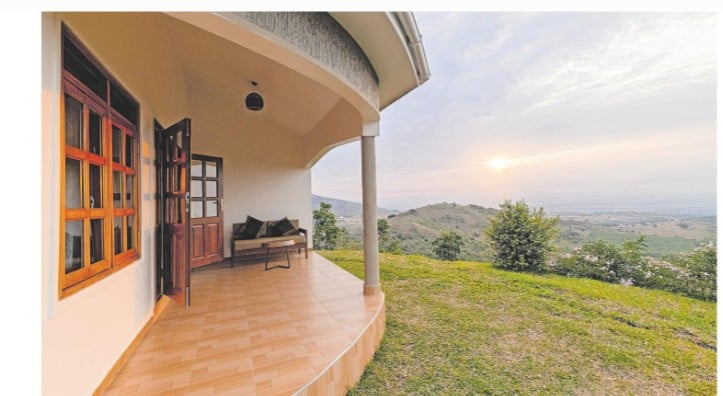Tourism is a catalyst for peace in Kasese

Writer: Eric E. Ntalumbwa. PHOTO/COURTESY
What you need to know:
- A peace and tourism celebration could serve as a platform to promote reconciliation, dialogue, and lasting peace among the communities.
After a successful Mt. Rwenzori Marathon event, Kasese will host the national celebrations of World Tourism Day (WTD) and the subsequent Explore Rwenzori . The focus is to highlight the important role tourism plays in promoting peace and understanding between nations and cultures and supporting reconciliation processes under the theme: "Tourism and Peace."
Kasese, located along the Equator in the western region of Uganda, has probably been chosen for strategic and beneficial reasons. Besides the area's native cultural mix predominantly of Bakonzo, Banyabindi, and Basongora tribes, known for their deep-rooted traditions in dance, music, and storytelling, and its breathtaking landscapes, including Mountains of the Moon (a UNESCO World Heritage site), Queen Elizabeth National Park, and Lake George, the district has experienced conflicts in the past, particularly related to land disputes and ethnic tensions.
A peace and tourism celebration could serve as a platform to promote reconciliation, dialogue, and lasting peace among the communities.Between 2018 and 2023, reports emerged about the killing of about 17 lions in Queen Elizabeth National Park. This tragedy has led to a decline in lion populations, putting the overall attractiveness of Kasese as a wildlife destination at risk. It is deeply concerning to see the impact of human-wildlife conflicts due to habitat loss, encroachment, and demand for bush meat, especially in terms of loss of human lives, property damage, and tension between local communities.
Conflicts in the Rwenzori Sub-region have hindered its potential as a major tourism hub in Uganda. Political stability and safety are crucial for tourism globally. In Kasese, conflicts driven by livelihood and resource issues, politics, climate change, and desires for self-determination along ethnic lines have impacted the region's development. The emergence of the Allied Democratic Forces (ADF) in the 1990s and recent violent ethnic clashes have deeply affected Kasese, causing significant divisions, trauma, and stereotypes.
I believe that through collaborative efforts targeting key stakeholders; tourists, the media, tourism businesses, and the tourist source markets and initiatives such as multi-stakeholder planning and involvement of the private sector arm of tourism, we can restore safety, revitalize the tourism sector, and ultimately contribute to the global effort to end poverty and ensure peace and prosperity for all by 2030, as outlined in the Sustainable Development Goals (SDGs).The government’s crisis management efforts should showcase her ability to minimize losses and ensure safety.
Uganda Tourism Board (UTB) should focus on stimulating tourism demand in the Rwenzori sub-region, promoting domestic tourism through campaigns like Explore Uganda, and attracting visitors from segments less affected by conflicts. The government should also prioritize strengthening security, implementing community policing, improving infrastructure, and fostering peace through dialogue to boost the tourism sector in the Rwenzori sub-region.
As humans, we have always been drawn to explore new places. In the past, travel was unrestricted, and people journeyed for a variety of reasons, including exploration, conquests, pilgrimages, and trade. This led to the exchange of cultures and ideas, shaping the historical and cultural heritage that we see reflected in magnificent monuments, mausoleums, and museums today. Even before the invention of mobile phones, travel served as a powerful means of connecting people, contributing to making Uganda a better and more peaceful place. Travelers often return home with new knowledge, a deeper appreciation for other cultures, and a better understanding of the environment.
Similarly, the celebration of Peace and Tourism in Kasese not only showcases the area's rich cultural and natural resources, such as protected areas, forests, lakes, and minerals, but also contributes to peacebuilding, economic growth, and a positive global image. As we immerse ourselves in the wonder of Rwenzori, it's essential to bear in mind that this beautiful tourist destination is facing challenges due to climate change, despite ongoing efforts to mitigate its impact and adapt to changing conditions.
The glaciers of the Rwenzori Mountains are rapidly melting, affecting local water resources, agriculture, drinking water supply, and hydropower generation. Kasese is experiencing increased floods and landslides linked to climate change, resulting in more intense and unpredictable weather patterns that are affecting lives, property, and infrastructure.
Eric E. Ntalumbwa, MCIPR PR &Tourism Management




